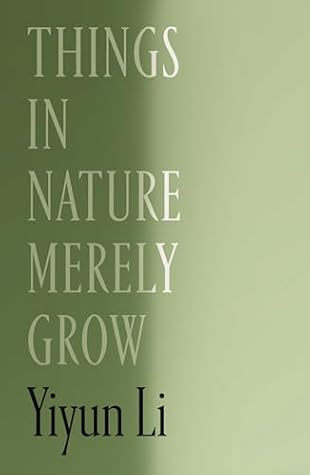More on this book
Community
Kindle Notes & Highlights
A case involving life and death never miraculously closes itself at the time of the pronounced death.
Everywhere I turn in the house there are objects: their meanings reside in the memories connected to them; the memories limn the voids, which cannot be filled by the objects.
The world, it seems to me, is governed by strong conviction and paltry imagination and meager understanding.
What can parents do but give their children the space to be, and allow them to do what they need so they can become more of themselves? And yet, despite the parents’ efforts, and despite all the beings and doings that occur as the children grow, some among them die before their time.
When Vincent was around the same age, he asked, pointedly: “You understand suffering, and you write about suffering so well; why did you give birth to us?” A question for which I never had a good answer.
Knowing something that may or may not happen in the future does not exempt one from the tasks of living. Intuitions are narratives about potentials, possibilities, and alternatives. In that sense, intuitions are fiction, until, once confirmed by life, they become facts.
Children die, and parents go on living. Those parents go on living because that’s the only way for them to go on loving their children, whose deaths easily turn them into a news story one day and gossip the next day, and then, eventually, statistics.
Death, a major disruptor of life, can feel like a black hole, depleting all one’s energy, but death fails to be a black hole in one particular sense: it does not absorb all the time. Those who have to live through the days after a beloved’s death and those who are beset by debilitating depression will know this: time stands still, time feels monotonous, and then time becomes Sisyphus’s boulder. One carries it from morning to night, and if sleep comes, it’s but meager comfort with little relief. Then, one starts all over again the next day. The exhaustion one feels while mourning or battling
...more
mouth. How extraordinary, I realized then, when a friend, not dreading discomfort or unease, has the courage to ask the most difficult questions. Despite catastrophes, I am still myself—this, I’ve learned, is not necessarily obvious or even graspable to some friends; not all of them treat me as the intellectual equal of my old self.
Inevitably there were people who wrote that they understood our pain because, though they hadn’t lost a child or they didn’t have children, they had lost a parent or a beloved pet. Kindhearted and well-intentioned people: don’t make those comparisons. These messages are not compassionate; they are clueless, even egotistic. It’s all right not to understand the situation—neither do the parents! And it’s more than all right to acknowledge that you cannot find the right words—I, a professional who has worked with words for twenty years, can’t either. It’s not quite all right when you make yourself
...more
YIYUN LI


